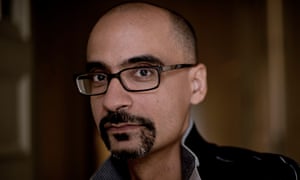It’s not a whodunnit, #MeToo – the most significant metric is not the severity of the shock each fresh revelation provokes. Whether or not you are aghast with surprise or invoke instinct or esoteric knowledge to declare that you suspected something all along is insignificant. Its only use is to help us calibrate how far entrenched are the social mechanisms that protect men from the consequences of their actions and deny women the support and care they need having suffered those actions.
In short, it is not about you. You do not get points for having predicted the villain and your retroactive piecing together of the plot has no place here and borders on the ghoulish. The temporary suspension of the Nobel prize in literature while the Academy gets to grips with an abuse scandal is not some high-culture Scandi-drama, in which lurid violence is enacted against a backdrop of stylish interiors and scudding skies.
The emergence of allegations of sexual aggression and misogyny against the writer Junot Díaz is not American Bitch, the episode of Girls in which Lena Dunham’s Hannah Horvath meets a manipulative male writer and finds herself both reluctantly fascinated and thoroughly repulsed. No. These stories are about real people who may have endured real harm at the hands of those more powerful than them and who have felt, often for many years, unable to voice those experiences. Not uncommonly, the price of their silence has extended beyond “pure” emotional damage to a clear impact on their professional, financial and creative lives; that price has been paid while watching their oppressor appear to flourish and to receive the world’s approbation.

But, of course, these narratives are about you and about all of us. And when they involve those who tell stories for a living, they are also unavoidably about the weight that we accord different words, from different mouths. In the literary world, we have known since God was a lad that a woman writing about relationships, parenthood and the domestic sphere was a lady novelist more likely to provide consolation than controversy, while her male counterpart was creating a searing portrait of the power dynamics of intimacy. When Proust writes about a biscuit, a whole world of time, memory and mortality opens up and alters perception; when a woman does the same, a magazine rings her to ask for the recipe. (No shade on Proust, who is the absolute boy. But you know it’s true.)
In fictional terms, the Nobel fiasco would not pass the verisimilitude test. A secretive organisation, whose inner workings may not be known but are yet powerful enough to transform anointed writers’ careers; a man accused of long-term sexual abuse, some of which is alleged to have occurred in venues part-funded by that same organisation; a wife – for the accused is not a judge of the literature prize, but his wife is – compelled to take responsibility for her husband’s actions. The result: a prize leaking authority by the minute, in a world where prizes are king.
Leaving aside whether it is right or not to expel Katarina Frostenson from the Swedish Academy, one thing is striking: the members of Nobel committees are unchanging and, indeed, are not permitted to resign. It is, literally, a job for life. How, then, can change – of representation, of taste, of personality – ever come to pass? And why do we venerate the decisions of this immutable group of people whom we do not know.
For veneration is the problem. Once we get beyond the hell of abusers behaving with impunity, of the networks that may enable and guard them, of the disbelieved women and of the unspeakable insanity of the abuse hierarchy – the immediate recourse to the exhausting, cyclical conversations that go “a patted knee is not verbal insult is not a sleazy gesture is not a rape” – then we come back to the issue of worship.
Díaz, it has been asserted over the last couple of days, was the darling of the New Yorker, the trailblazer for Latinx writers, the creator of works that readers hold to their hearts. When, last month, he wrote of being raped at the age of eight and when he painstakingly elaborated on its after-effects – depression, thoughts of suicide, impotence – his openness and courage were widely hailed. Now it is being described as a pre-emptive bid for leniency and sympathy as the day of reckoning approached. But his experience exists either way.
As people now focus on the way female characters are treated in Díaz’s fiction – tricky, because there is a strong argument for separating novels from their authors, but Díaz has spoken frequently about the autobiographical nature of his writing – a line from the essay comes to mind. It’s surprising, Díaz wrote, how easy it is “to rewrite the truth away”. Fiction, no matter how much it corresponds to reality, and no matter its author’s intent, is different, because it is created by and in language.
There was an even more telling moment and it came when Díaz wrote of his “wine-dark sea of pain”. To deploy Homer is not a neutral act, even if it is unwitting. It is to summon a whole literary heritage and situate yourself in it, to make yourself part of the epic.
If you have loved The Brief Wondrous Life of Oscar Wao, you cannot unlove it. The art that affected us is in us: it is not a surplus or battered table we can leave out in the rain. What we have now to do is discuss how we separate reality from reputation; how we find a way to approach the impossibly painful story of an apparent victim turned alleged oppressor; how we centre the experiences of victims. And how we accept that age-old story: that Great Expectations are not always satisfied.
• Alex Clark is an Observer columnist